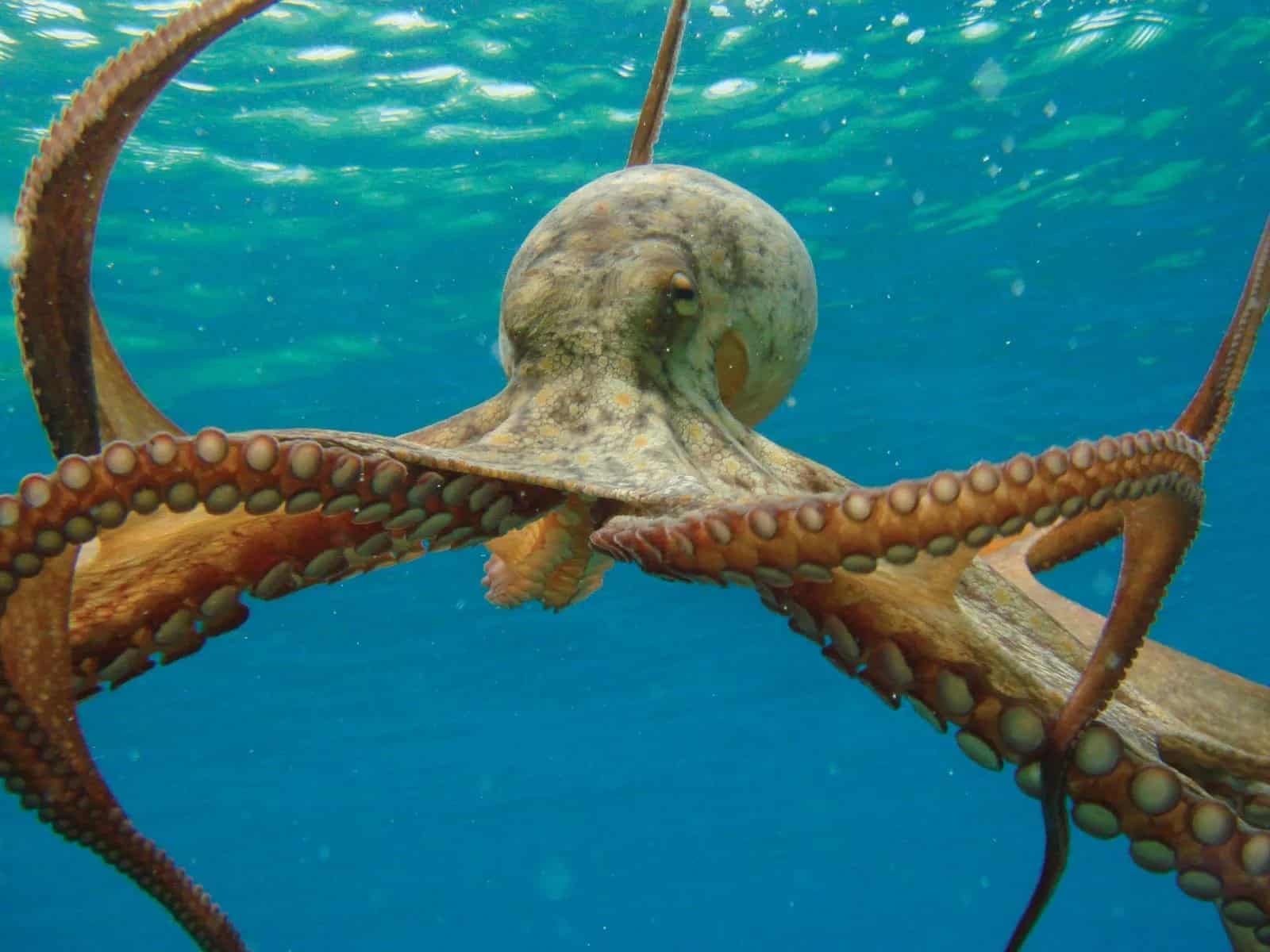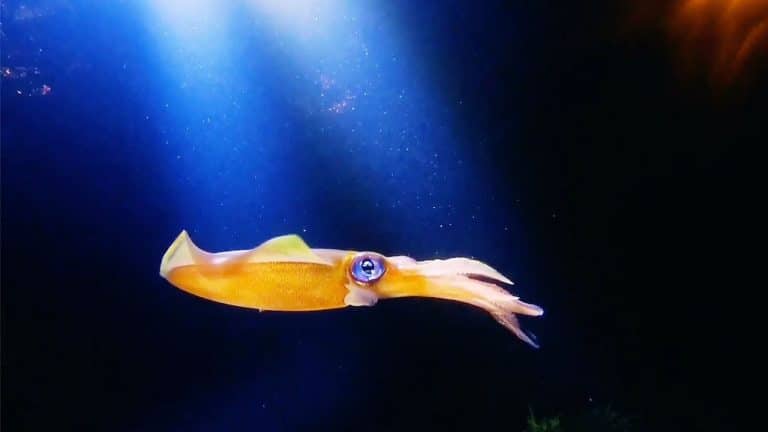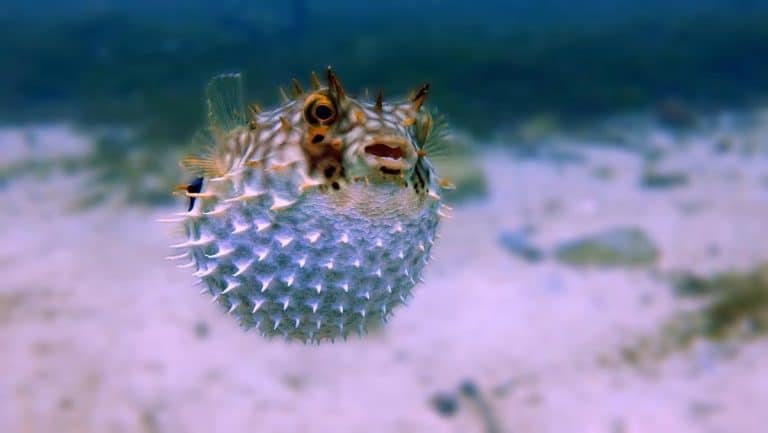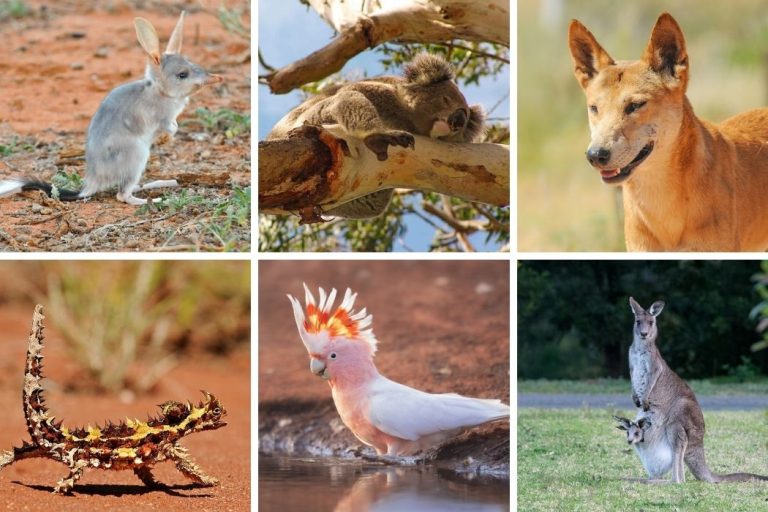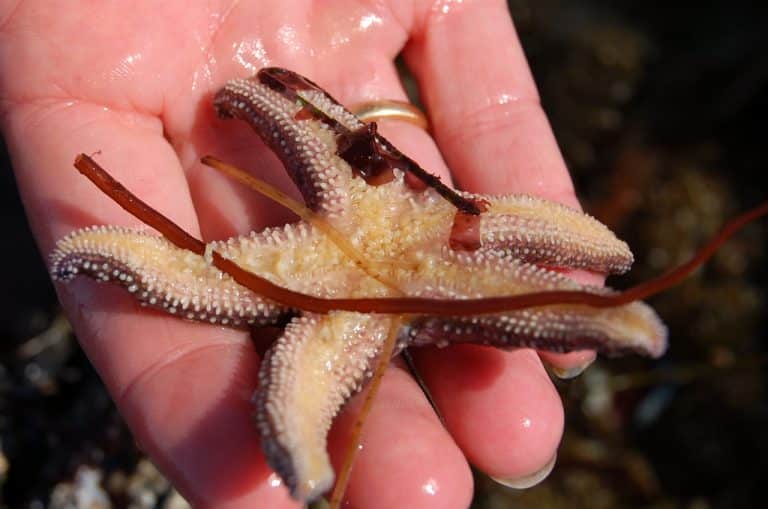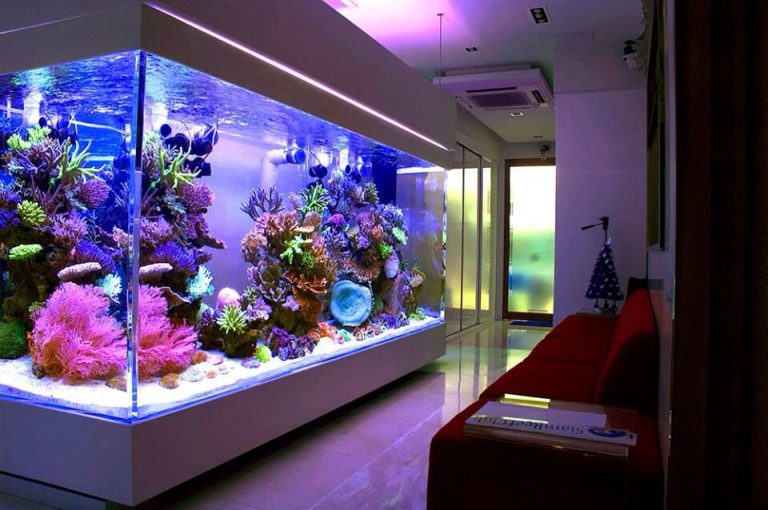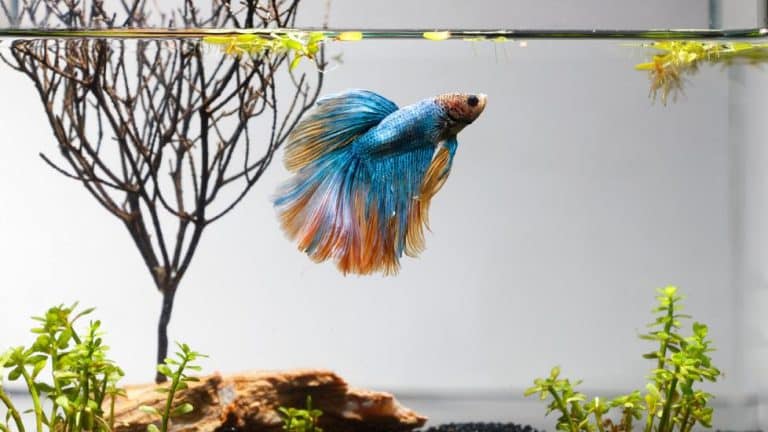Octopus: Fascinating Creature of The Ocean
Have you ever wondered what the depth of an ocean holds? All the living creatures surviving in its lap are nothing but truly magical. Ocean Life has amazing stories for you to unfold and read.
Whether it is the numerous plants or fishes, the ocean gives you a never-ending exploration opportunity. One such creature that leaves us all amazed is the Octopus. This eight-legged, round, intelligent creature stays in the ocean and has a personality that makes for a great read.
Their appearance has always been a drawing factor for many, and researchers have found surprising facts about their lifestyle and brain that you would love reading.
Let’s learn all about Octopuses and what makes them fascinating.
Overview of Octopus
An oceanic creature with a unique body, Octopus is cute and a fascinating being in all aspects. Octopus comes from the Greek Oktopus, which means “eight foot.” They have eight legs and a bulbous head with the cutest eyes and mouth.
Floating deep under the ocean, they are found in beautiful colors. Octopuses prefer staying at the bottom of the ocean rather than other creatures who come to the surface occasionally.
According to the World Animal Foundation, there are around 289 species of Octopuses worldwide. Let’s begin with their characteristics and personality.
1. External Characteristics
Although there are around 289 known species of Octopus, which makes it difficult to jot down their characteristics, some facts are found in all their species.
- An Octopus has eight legs and a strong beak around their mouth. Each of their eight legs has a suction cap at the end that makes their life underwater easier. In addition, these suction caps allow them to stick to any object and taste.
- Their size differs depending on the species. On average, a giant Octopus weighs around 15 kg, with arms up to 4.3 meters. The small ones weigh around 5-7 kg and have arms up to 2.5 meters.
- Octopuses do not have ears or the capability to make noise. This leaves them highly dependent on their eyes to survive, given that they live life in solitary.
- These round-shaped creatures are intelligent, and their brain is located in the skull, which has no bone.
- An Octopus can easily squeeze their body to fit in any place, and this is possible because of the lack of skeleton in their body.
- Their head is extremely large, which gives them the nickname- bulbous head.
- Using their eight legs, they can swim through water with grace and speed.
- If you ever get a chance to look closely, you can find gills under their legs as well.
2. Behaviour
Octopuses are not social beings, which is obvious given how deep in the ocean they prefer to stay. Most of them spend all their life in solitary, moving from one place to another.
- Octopuses are regarded as supercars of the ocean featuring multiple gears. If they are not looking for prey or hiding from predators, Octopuses walk lazily around the water. They can switch up the speed as the need be.
- They are amazingly good at escaping from their predators. In addition to being extremely fast, they produce a thick color of black ink made of melanin that leaves their predators with blurry vision. This gives Octopuses enough time to escape.
- Researchers have found their sneaky behavior the most intriguing as it makes their life in the water fun and smooth.
- An Octopus depends on fish for their meal. While most predators jump or stalk their prey, Octopuses squeeze their bodies to gently reach near prey and use their legs to scare/suck prey into their arms.
- They sleep in extremely closed areas, which would make any other being claustrophobic. Since Octopuses don’t have bones, they can easily squeeze without worry.
- They also have a unique color-changing skill that helps them hide from predators. An Octopus can easily change its color to match its surroundings. Purple Octopus can easily hide behind Purple Marine plants.
- Even when an Octopus gets caught by one of their legs, this is not a problem for them as they can lose the leg and regrow it over the next few days.
3. Ecology
- Octopuses live in the coastal marine. They spend all their life in solitary, hiding or resting in holes, crevices, and dens.
- They prey mainly on crabs and shrimps.
- To maintain the ecological balance, Octopuses are an important source of diet for dolphins, sperm whales, seals, and humans.
Additional Info: The easiest way to identify an Octopus’s den is by observing empty crab or clam shells at the entrance.
4. Diet and Metabolism
- To begin with, an Octopus feeds upon clams, crabs, and shrimps. They carry a type of venom in their body that is injected into the body of prey to kill them slowly.
- Octopuses have a fast metabolism that allows them to digest even large quantities of food.
- Their excretion process is similar to that of vertebrates. The excretion characteristics are majorly based on its two nephridia- excretory organs. Any waste produced in the body of an Octopus is easily pushed out because of these two organs.
5. Lifespan and Offspring
- These fascinating creatures of the ocean have a rather shorter life span. Some smaller species might even die within six months of birth, while others live up to five years.
- During their short span of life, Octopuses mate and reproduce, as well.
- Octopuses do not have an external genitalia.
- Studies show male Octopuses give sperm by intersecting their specialized arm, called a hectocotylus, inside the female mantle cavity.
- In some cases, they are also found handing out sperm (leg) to female Octopuses to take the process forward.
- Once impregnated, females lay over 200,000-400,000 eggs. They are overly protective of their eggs and hatch them till they are born.
- Additionally, many studies also suggest that female Octopuses die right after giving birth.
Octopus: Unique Facts About Their Brain
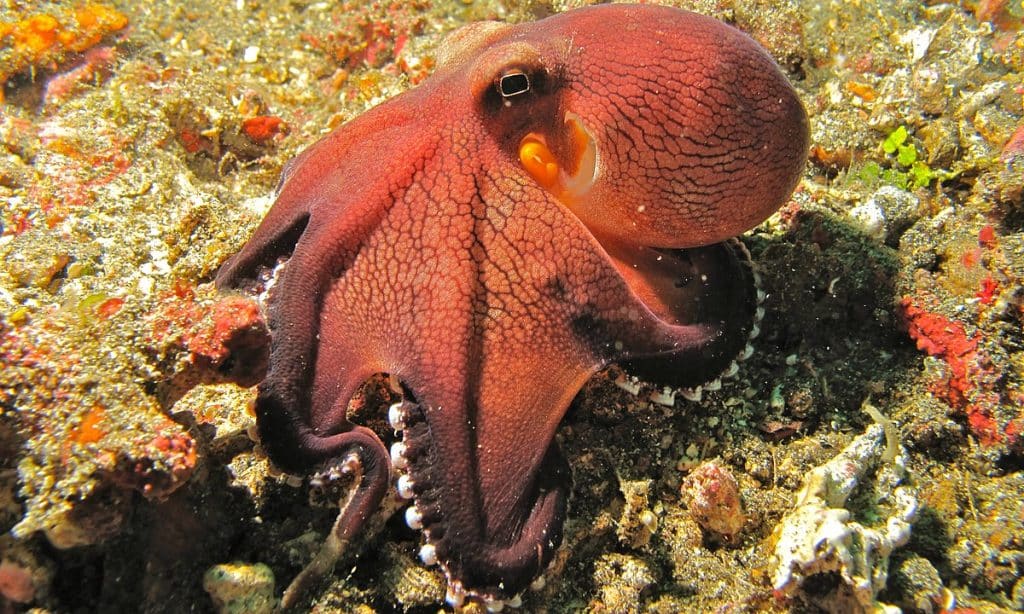
Octopuses are intelligent and sensible beings with a high sense of alertness and awareness of the ocean. This is probably the biggest feature that sets them apart from other invertebrates. They have a highly evolved nervous system and cognitive complexity. Here are some unique facts about their brain that will leave you amazed
- Starting with a fact that surprises every reader- Octopuses have nine brains.
- Their central brain is located between the eyes and is shaped like a doughnut.
- The brain-to-body ratio of an Octopus is the largest compared to other invertebrates.
- What makes them even more interesting is how amazingly they have adapted to multiple brains and used them to sharpen their skills. It is believed that Octopuses are capable of using tools, solving puzzles, getting out of mazes, and more.
- Fundamentally, they use nine brains to control their eight legs.
- Now that you know that Octopuses have eight legs, it might surprise you to know that their legs feature the majority of the neurons. Each of them has special skills, such as smelling and touching. These neurons also allow them to control their movement in the ocean without relying on inputs from the brain.
- Their brains also work on the same human anatomy- Keeping short-term and long-term memories.
Can an Octopus Get to Know You?
Now that we have established how sensible and intelligent an Octopus can be, it should not be a shock that they can get to know you.
Octopuses have the capability of recognizing species outside their kingdom, including humans. They are smart and emotional enough to bond with humans or even pick on them.
A rather interesting story tells that an Octopus developed a dislike for one of the staff. Every time the staff would pass from the glass tank, the Octopus would use all its legs to squirt water at her.
Captive Octopuses are known for recognizing human keepers and behaving differently to different keepers. This means that you can even become friends with an Octopus.
While this surely is a common skill of many mammals, the presence of this skill in Octopuses makes it even more interesting.
Interesting Facts About Octopus That Will Leave You Stunned
1. Three Hearts
An Octopus has three hearts, which is a unique feature. All three hearts serve different purposes. Two hearts are responsible for pumping blood through the gills and picking up oxygen.
The third heart, the central heart, circulates the oxygenated blood to the rest of the body. Studies show that the presence of three hearts is also why Octopuses have blue blood.
2. Octopus Ink
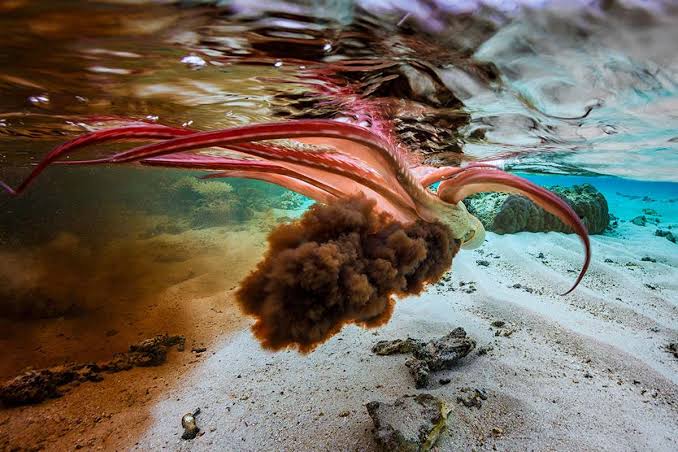
Octopuses are cephalopods, which means that they have the capability of creating ink. They can secrete dark-colored ink with a sticky texture and serve multiple purposes, especially for the survival of Octopuses.
They have special glands that create ink diffused through funnels of their mantle. The ink is primarily used to confuse their predators and escape. Additionally, the ink has been seen used as a food color that also adds a unique flavor.
Additional Info: In ancient times, the ink of Octopus was used to write as well.
3. Legs Have Minds of Their Own
You heard it right. Octopuses are famous for having nine brains. While their central brain is between their eyes, the other eight brains are in their eight legs. This allows all their legs to perform tasks individually.
For instance, One of the legs will be responsible for touching and feeling while the other will smell. The presence of a brain in each of the legs makes it easy for them to swim effortlessly.
4. Blue Blood
It is safe to say that Octopuses have royal blood- Blue Blood. Unlike other living beings, they do not have red blood. What makes their blood blue?
This is simply because the protein content that carries oxygen in their body contains copper rather than iron (responsible for hemoglobin that makes blood red). Their gorgeous body bleeds blue enough to draw your attention.
Additional Info: The presence of copper protein makes transporting oxygen easier, given the cold and low oxygen conditions under the ocean.
5. Building Homes
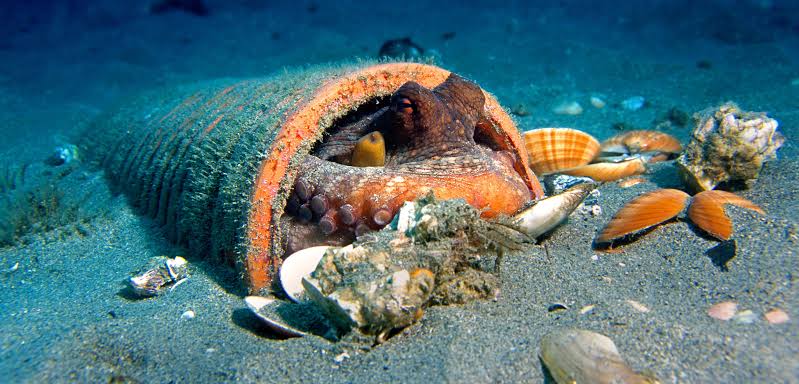
Octopuses are intelligent creatures who can build their own homes. Yes, they are great builders. Octopuses stay in dens that are made of rocks. Have you ever imagined how these dens are made? An Octopus is a strong being that can lift rocks and use their suction pads to move rocks from one place to another.
What makes it even more interesting is that they make rock doors as well, which leaves one wondering about their smartness. It is believed that Octopuses are grumpy beings who dislike being disturbed inside their dens.
6. Speedy Swimmers
A fish with two fins can swim at a speed that has left all of us in awe. Imagine what Octopuses with eight legs can do. They are not only super fast at swimming but also can swim backward equally fast.
Their backstrokes are driven by a simple method of blasting water through a muscular tube of their body. In addition, Octopuses truly work on gears. They can swim at the speed of supercars, walk like lazy heads, and crawl while looking for food.
7. Octopuses as Parents
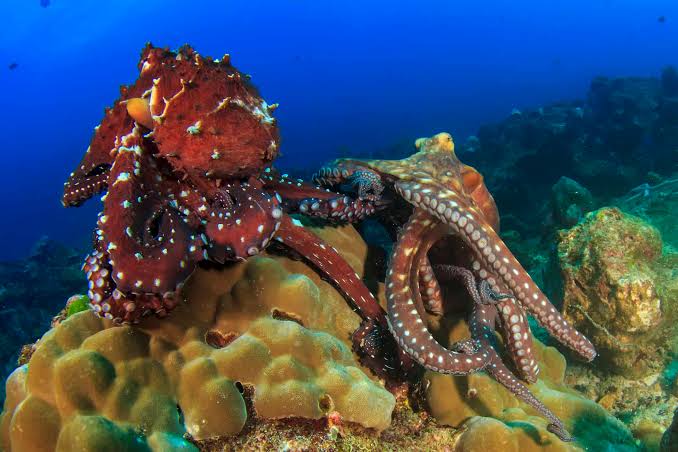
Humans are considered the most giving living beings when it comes to their kids. Have you ever wondered about the relation of Octopuses with their offspring? Female Octopuses are said to give up their life while protecting their eggs.
They starve themselves to ensure protection and hatch eggs day and night. This often leads to their death. Even Male Octopuses accelerate their speed towards death once they are done with their part in the reproductive process. No wonder Octopuses have a short span of life.
8. Intelligent Creatures
Octopuses have nine brains. This must have been enough for you to understand that they are extremely smart and intelligent creatures. To remove all your doubts- Octopuses can handle tools and solve puzzles. In many places, they carry coconut shells broken in two halves.
This serves as a mobile home for Octopuses. There are several images of them carrying coconut shells, and they are often regarded as Coconut Octopuses.
9. Octopuses are Ancient
You might have been hearing about Octopuses ever since you were a kid. This might make you wonder how long they have existed. Recent studies done by research scientists suggest that fossils resembling Octopuses were found that date back to at least 330 million years ago.
Yes, Octopuses have existed before Dinosaurs. They also noticed a unique change in this fossil- Fossils had 10 limbs, which is different from Octopuses today, who have 8 limbs. This is a great example of their evolution through all these years.
Summing Up
Octopuses are way more interesting than you thought them to be. Right from their appearance and habits to their brain and survival skills in the ocean, they are 100% the most intriguing beings of the ocean.
Many believe that Octopuses are the closest we have gotten to aliens, and this doesn’t sound surprising given their nine brains. They are found in almost all corners of the world and Southeast Asia. You can visit aquarium museums to catch sight of these fascinating creatures.
The best part is that they have not been declared endangered, and we all want them never to cross the fence. Here’s to hoping that the reader is convinced to make a trip to an Octopus museum soon.
Frequently Asked Questions
How Many Brains Does an Octopus Have?
An Octopus has nine brains. Their central brain is located between their eyes, while the other eight are in their eight legs. This is why it is believed that octopus legs have a brain. Each of their brains works for different purposes, such as touching, smelling, and feeling.
How Many Hearts Does an Octopus Have?
An Octopus has three hearts, making them a truly emotional and “big-hearted” creature. Each of their hearts works together to complete the cycle of pumping blood through oxygen.
What is Octopus Ink?
Octopuses have a special gland that allows them to create a thick and sticky fluid, often called their ink. The dark-colored ink serves the primary purpose of helping them escape from predators. Ancient people have used the ink to write, and there are many instances of Octopus ink being used in different cuisines, as well.

